
Josh Haden: “There’s always a catharsis involved when writing songs, but also a lot of joy.” Pic: Miriam Brummel
Having made one of our favourite albums of the year so far, we caught up with Spain’s exceptional songwriting frontman
It’s not often that we give a record five stars. Therefore, when we do we’re eager to speak to its creator. Such is the case with Josh Haden, the leader and architect behind his band Spain’s latest album Carolina, a tour de force of storytelling and accomplished songcraft which lingers long in the listener’s conscience. Carolina added elements of Americana and country to the band’s usual sound to create a fitting backdrop for song subjects as diverse as homesteading time-travel and the Great Depression.
Since their 1995 debut The Blue Moods Of Spain, Haden and his cast of collaborators (which currently includes his sister Petra and the revered multi-instrumentalist Kenny Lyon) have been pioneers of the slowcore genre and the dusky sonics of their song Spiritual proved to be an inspired choice for Johnny Cash and Rick Rubin on their American II: Unchained album.
Josh took time out from his European tour to reveal the very personal influence behind the new record and to examine his songwriting. Much like the album itself, it’s a conversation which greatly exceeded our expectations…
Was the writing of the album a cathartic process?
“There’s always a catharsis involved when writing songs, but also a lot of joy. If there’s no joy in songwriting there’s no point! I have a lot of fun writing songs, and I’m so thankful when people listen to the songs I write. It’s important to me to make an artistic point, follow certain themes, and above all attempt to retain a high level of quality in songwriting. The catharsis aspect is not so important to me on a conscious level. It comes automatically. For example, one time I was feeling like a cold was coming on and I sat down and worked on a new song. The next day the cold was gone. I think the act of songwriting is healthy for people and solves a lot of physical ailments.
“That being said, for Carolina there was a lot of catharsis involved, even though I only noticed it after the record was finished. I suffered the loss of my father a few years ago, just before I started writing the songs for the record, and I think a lot of the impetus for the songwriting came from the grief I was feeling, and trying to deal with those emotions in a healthy, constructive way. I think songwriters are kind of fortunate in that sense. Songwriters are able to deal with personal loss and transform those feelings of sadness into something that can bring them through it and hopefully help others as well.”
It’s clear that your dad had a big influence on your music, are you able to put into words some of the things he taught you?
“Well, let’s start with the technical things. My father is Charlie Haden, one of the most influential jazz bassists and influencers of music of all time. When I was thirteen I took guitar lessons but didn’t really connect with the guitar. There were too many strings. I told my dad I wanted to try electric bass and he found me a Fender Precision bass at the pawn shop his family ran in Springfield, Missouri at the time. I fell in love with the Fender Precision and that’s all I wanted to play. I started a punk band with some neighborhood friends. My dad told me I should play bass right-handed (I’m left-handed) because my left hand was stronger than my right so I could press the notes harder, and where I should position my fingers on the fretboard. And also where the same notes appear on the fretboard at different places.
“Just as important were the spiritual musical lessons my father taught me. He taught me being a good person was the first step to being a good musician. He taught me to approach every note I played as if it were my last, and to attach that level of importance to every note and every song I wrote.”
A number of the songs depict specific historic events, was a lot of research undertaken for the record?
“There was some research. For example, the Farmington Mine Disaster of 1968, which convinced the U.S. Congress that the lives of miners were more important than kickbacks from the mining industry. Also the pivotal American Revolution battles that were fought in upstate New York. I remember learning about a lot of this stuff in high school. But most of the events are based on things that happened to me, like when I attended a house party and learned it was a wake for Timothy Leary, and the experiences of my grandfather during the Great Depression he related to me as a child.”

Spain performing live. Josh: “Sometimes I wish I could stay on tour indefinitely.” Pic: Miriam Brummel
Similarly did you have to dig deep into your family history?
“The song The Depression is a good example of this. It’s about my grandfather’s dog that had to be left behind when his family couldn’t afford to live on a farm in upstate New York during the Great Depression of the 1930s. Or the song Battle Of Saratoga which is an oblique reference to my father’s struggles with drug addiction. These are issues very close to me and I think songwriters shouldn’t be afraid to write about what they know personally and what is important to them personally.”
You’ve mentioned that you returned to your ‘musical family roots’ on this album, did you have specific musical memories from your childhood which proved useful during the writing?
“My earliest musical memory from my childhood was when my parents took me on tour with them when I was three years old. My mom tells me I was really sick with the flu most of the time but I don’t remember that part. I remember one day in Italy we were in a cafe and an old man selling toys came in. He gave me a little mechanical train set where you wind it up and the train goes over hills and through a tunnel. I’ll never forget that. Being on tour comes really easily to me. I feel like I’ve been on tour my whole life. Sometimes I wish I could stay on tour indefinitely. I’d bring my wife and my son and just tour forever.
“Once when I was around eight or nine I was riding bikes in front of my house and in the distance I saw an ice cream truck driving towards us. As it got closer I saw it was one of the most crazy looking ice cream trucks ever. The truck slowed down and stopped in front of me. The door opened and the driver asked me, ‘Does Charlie Haden live here?’ It was Don Cherry, the jazz trumpeter and one of my dad’s closest friends. I said yes, and Cherry looked back and said ‘OK kids, you can get out now!’ The back door opened and about 15 kids ran out, screaming and yelling and wanting to play. Don Cherry’s son, Eagle-Eye, is one of my closest friends. We have a connection I don’t have with other people.
“I don’t know how useful these memories were to the writing of Carolina but all of these memories inform my songwriting. Songwriters can’t be afraid to let themselves be inspired by all the experiences that formed them as human beings.”
Did you have to immerse yourself in alt-country in preparation or was it a genre you found easy to step into?
“I don’t think alt-country is a proper genre! It’s a musical description invented because country music has become so commercial it doesn’t sound like country music anymore. So alt-country is actually real country music! Alt-country is how country music should sound. I’ve been immersed in country music my entire life. My father’s father started a country gospel act with his entire family. They were called the Haden Family and they played on radio stations throughout the American Midwest. My father started singing country music on the radio when he was two and a half years old. It was really important to my dad to make sure his kids knew about his family’s musical history. In 2008 my family recorded an album called Charlie Haden Family & Friends: Rambling Boy which revisited the country songs of my dad’s youth. So I didn’t have to immerse myself in country music in preparation for Carolina, I’ve already been immersed in it!”
Was it important to have Petra work with you this time?
“I’ve been working with my sister Petra Haden on the Spain albums since she played violin and sang on the song World Of Blue from the first Spain record, 1995’s The Blue Moods Of Spain. My sister Petra Haden is one of the best singers and multi-instrumentalists out there. We also get along really well and she understands what I’m trying to do musically. I’m so happy to be able to work with all my sisters. Tanya is an amazing cellist and Rachel is a bass player and pianist, as well as an incredible songwriter.”

Spain. Haden: “I never assume I’m a great songwriter, but I was definitely born into it.” Pic: Miriam Brummel
Are we correct in thinking dreams have always played an important part in your writing? Why do you think that is?
“Dreams are a big part of the concept of Spain. In 1993, after I’d put the original band together, we had our first gig but didn’t have a band name. I’d been agonizing over the band name for months and couldn’t think of anything. One night I had a dream where someone came up to me and told me the name of my band should be Spain. The next morning I woke up and called my guitarist at the time and said ‘The name of our band is Spain,’ and he said ‘OK!’ Sometimes I come up with melodies in my dreams that end up in actual songs. Songwriters should never be afraid to listen to their dreams!”
Do you enjoy the process of writing? Are you able to explain how a Spain song is born and brought to life?
“I never assume I’m a great songwriter, but I was definitely born into it. I’ve been writing songs ever since I was around five years old. The first song I wrote was in 1973 and it was entitled Need A Little Love. I can still remember the verses and chorus. So I enjoy the process of writing. Songwriting makes me feel like a whole person. It’s my job and life.
“Every Spain song is different. I’ve been writing songs for Spain for over 20 years so you’d probably have to look at each record individually. In the past, I might have a melody that I’d figure out on bass, and an idea for some lyrics. I’d show the bass lines to the guitarist and maybe sing what I hear as the guitar part to him. But again every song is different. Some songs take a long time to finish. Some songs take just 10 minutes.
“I’m Still Free, from the 2012 album The Soul Of Spain, is one of our most popular songs and I wrote it while I was washing the dishes. By the time the dishes were done I had a new song! Every Time I Try is an interesting example. In 1998 the film director Wim Wenders contacted me about writing a song for a movie he was completing called The End Of Violence. He initially wanted me to write something completely out of my genre, like dance music or something. He thought it might be interesting to put me out of my element and see what came from it. I wrote something and he didn’t like it! He told me to write a Spain-style song for a different scene but only gave me one night to do it. The deadline was the next day. I bought a bottle of whiskey and came up with something, did a very basic recording and Wim loved it.”
Do you write on your bass? Do you think that influences where Spain’s sound comes from and has that processed evolved over the last two decades?
“I wrote songs exclusively on bass for years. It worked but as time went by the songs were getting more insular and I was getting tired of having to explain what I was hearing to the guitarists. I felt if I was going to continue to progress upwards in my songwriting I needed a change. Around that time my sister Rachel told me she had an acoustic guitar she wasn’t using, so she gave it to me. I taught myself basic chords and now I write exclusively on guitar. I think it affects the Spain sound a lot. There’s still sparsity in construction but I have a melodic freedom I didn’t have when I was limited to writing on bass. I think guitar simply has more voices than bass and it make sense that writing on guitar would open more sonic possibilities.”
How much input do the other members of the group have when it comes to the writing?
“It really depends on who I’m working with, how much songwriting they do and how much their songwriting style melds with mine. I’m always open to new ideas. Sometimes I’m able to write a song on my own, sometimes I need an editor to help me. Just someone to listen to the song and give me important feedback. All great songwriters have to be open to criticism and suggestions, and not take criticism too personally. Songwriting is a process and takes a lot of work, concentration and experience. Great songwriters make it look easy, but when you try to actually write a song you see how difficult it is.”

Spain. Josh: “I want to let things happen naturally and hopefully achieve magical results.” Pic: Miriam Brummel
Do you enjoy being in the studio? Are you a perfectionist or happier getting things done quickly and naturally?
“I’ve never considered myself a perfectionist in the studio. First of all, I’ve never known enough about studio engineering to be a perfectionist. When I’m in the studio I very much rely on the producer and engineer to create the magic with me. When I’m in the studio I want to feel like I’m being carried away into another land or dimension and that everyone involved in the recording process is going there with me. Almost as if no one is in complete control of the adventure. That’s why it’s hard for me to be a dictator about the sound, or the playing. I want possibilities to be endless and when I’m telling everyone what to do the result is usually pretty sterile. If there’s something going on I really don’t like or don’t feel close to, I’ll speak up, but usually I want to let things happen naturally and hopefully achieve magical results.”
What’s next?
“We’re about to finish part one of the Carolina European tour. After I get back home to L.A. we’re taking a short break and then Spain will start playing our weekly L.A. residency again. Our next scheduled L.A. show is July 30 at a memorial concert for Michael Sheppard. Michael was a good friend of mine, he ran an incredibly eclectic and important record label called Transparency and was very supportive of fringe and outsider artists in L.A. and around the world. There have been a lot of memorial shows for him in my city. He is greatly missed. Our European booking agent is constructing the Carolina Part Two tour for Fall 2016 so I’m looking forward to bringing our indie-pop/slowcore/Americana/free jazz extravaganza to more and more people in Europe. I’m also starting to record the next Spain record with Kenny so I’ll be pretty busy!”
Lastly, what do you think are the key elements needed for writing a great song?
“It really depends on how a person defines what a great song is. Some people define a great song on how much money the song can make, and that’s fine. Usually the most expensive and popular songs don’t do anything for me. They’re too homogenized and unsophisticated. My basic rule of thumb is that if millions of people like a song I probably won’t. It’s not to be contrary, but I think it has a lot to do with how I was raised and the importance on progressive and uncompromising songwriting my father had.
“To me, a great song is something that captivates me and temporarily puts me in a different world. The song doesn’t necessarily have to tell a story, but the lyrics and music have to be compelling and emotional. It could be a fast song or a slow song. On The Low by Hope Sandoval & The Warm Inventions is an example of a great song. It’s so mysterious and alluring, it really draws me into something preternatural and that’s what I’m looking for in the music I listen to. Then there’s a song like Part III by Bad Religion. With that classic bass line and important, hard-hitting message in the lyrics that’s so essential. What an amazing, memorable song.
“I also love storytelling. Bob Dylan is the master of that. One song I’ve been listening to a lot in the van is Til I Fell In Love With You, it really has a big effect on me. The entire album Time Out Of Mind has such of a kind of nostalgia only a touring musician can feel, I can tell it was written by a guy who spent his life on the road. Then there’s Justin Vernon of Bon Iver, whose songs I love so much. The song Holocene is in my top 10 pop songs of all time, and I basically have no idea what he’s talking about. But I can feel it, and that’s what a great song does. A great song doesn’t necessarily have to communicate something readily understandable or easy to comprehend. The House That Built Me from the Miranda Lambert album is an example of a commercial song that has lyrics and a story that I fully understand and relate to. The first time I heard that song it made me cry. It’s such a universal feeling the songwriter has tapped into.
“Then there’s the jazz stuff that has no lyrics. Charles Mingus’ II B.S. reaches in and grabs my soul. I have to listen to that song at least once a day or I get depressed. Then there’s classical music, Bach, Mozart, Arvo Part, there are so many examples of great songwriting I could go on all day. But what they all have in common again is something that touches me on an emotional level that only strong feelings can bring, like love, and puts me into that supernatural love world.”
Interview: Duncan Haskell
Carolina is out now on Glitterhouse Records, the band’s website can be found here spaintheband.com





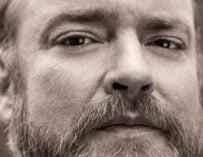
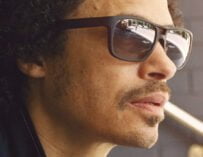


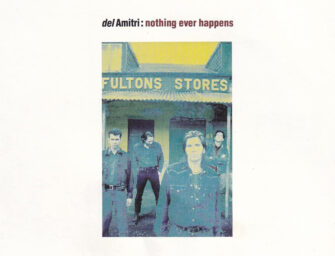

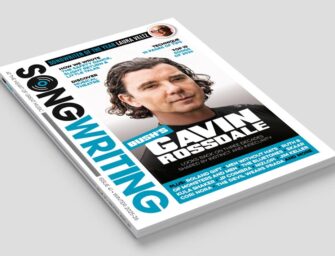
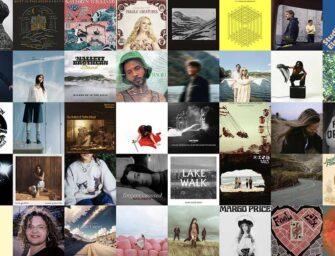





















Related Articles